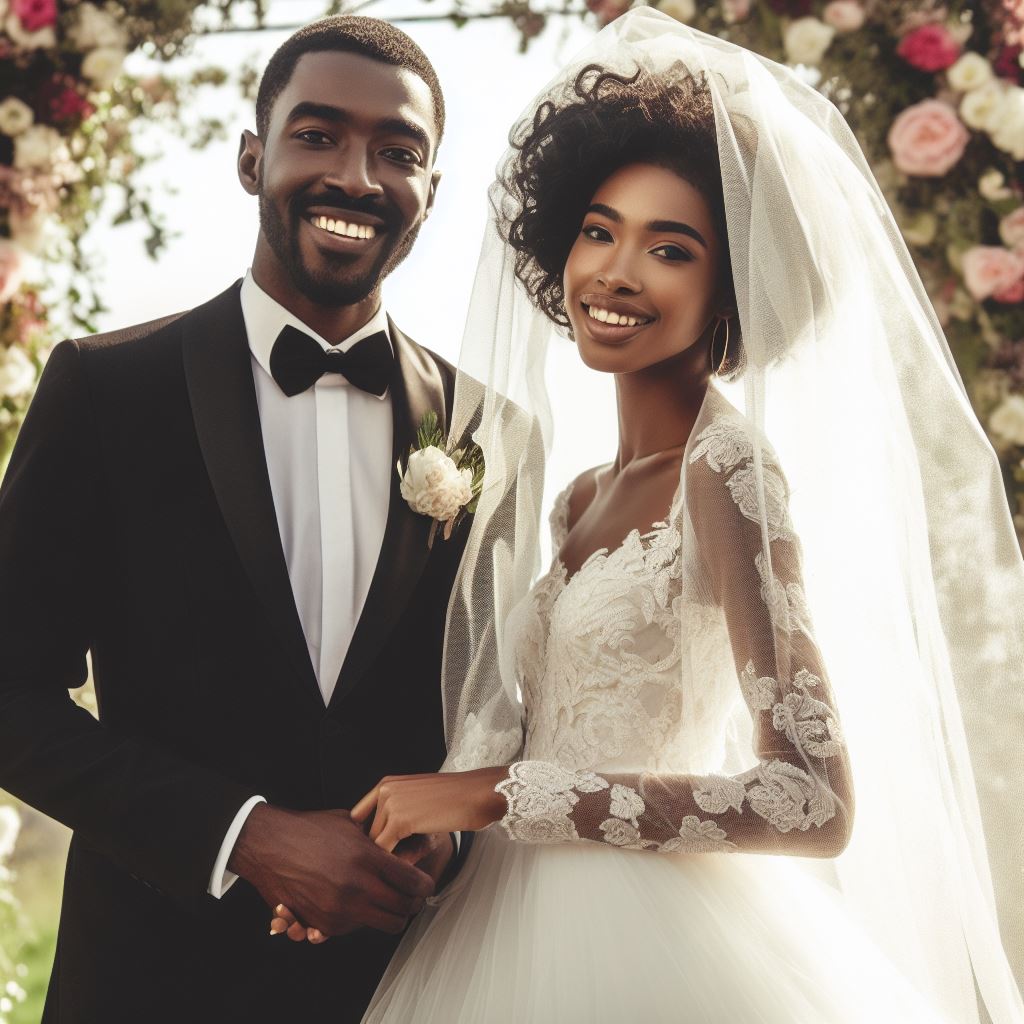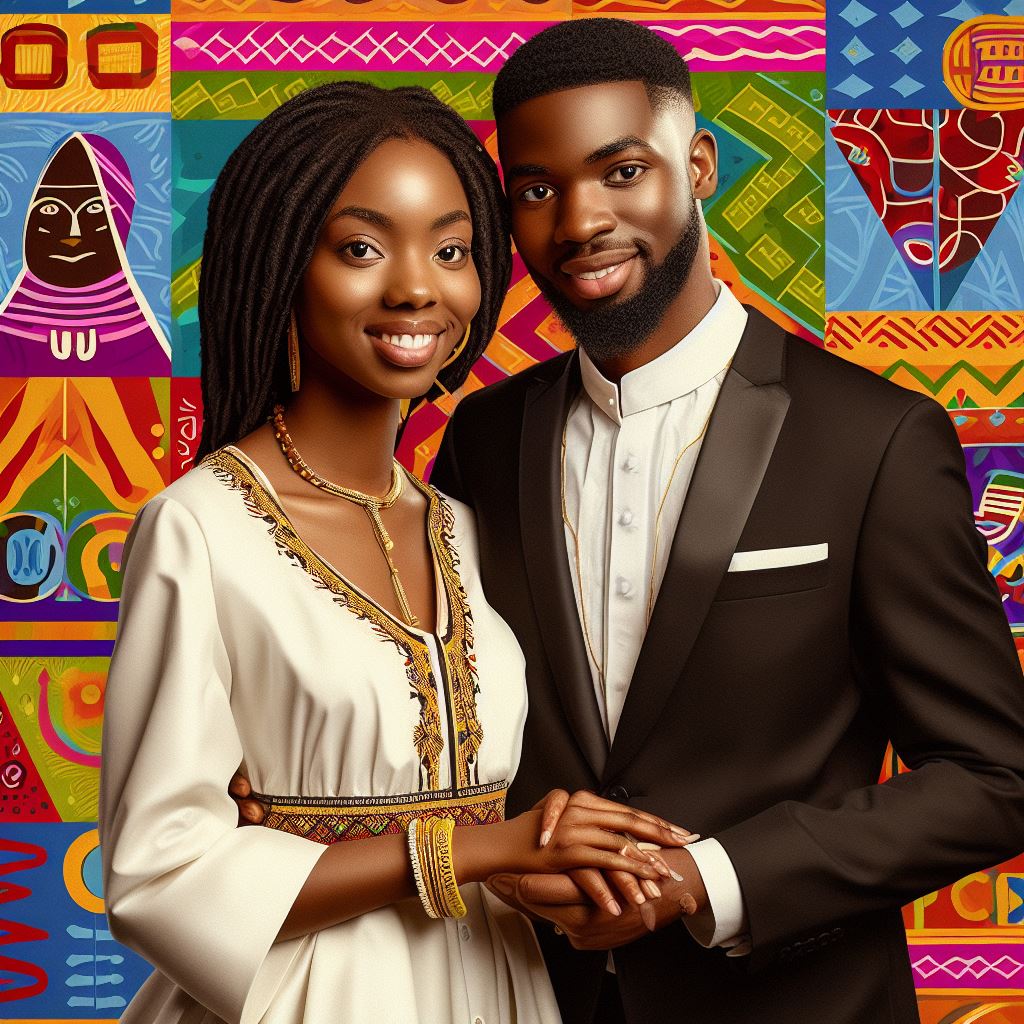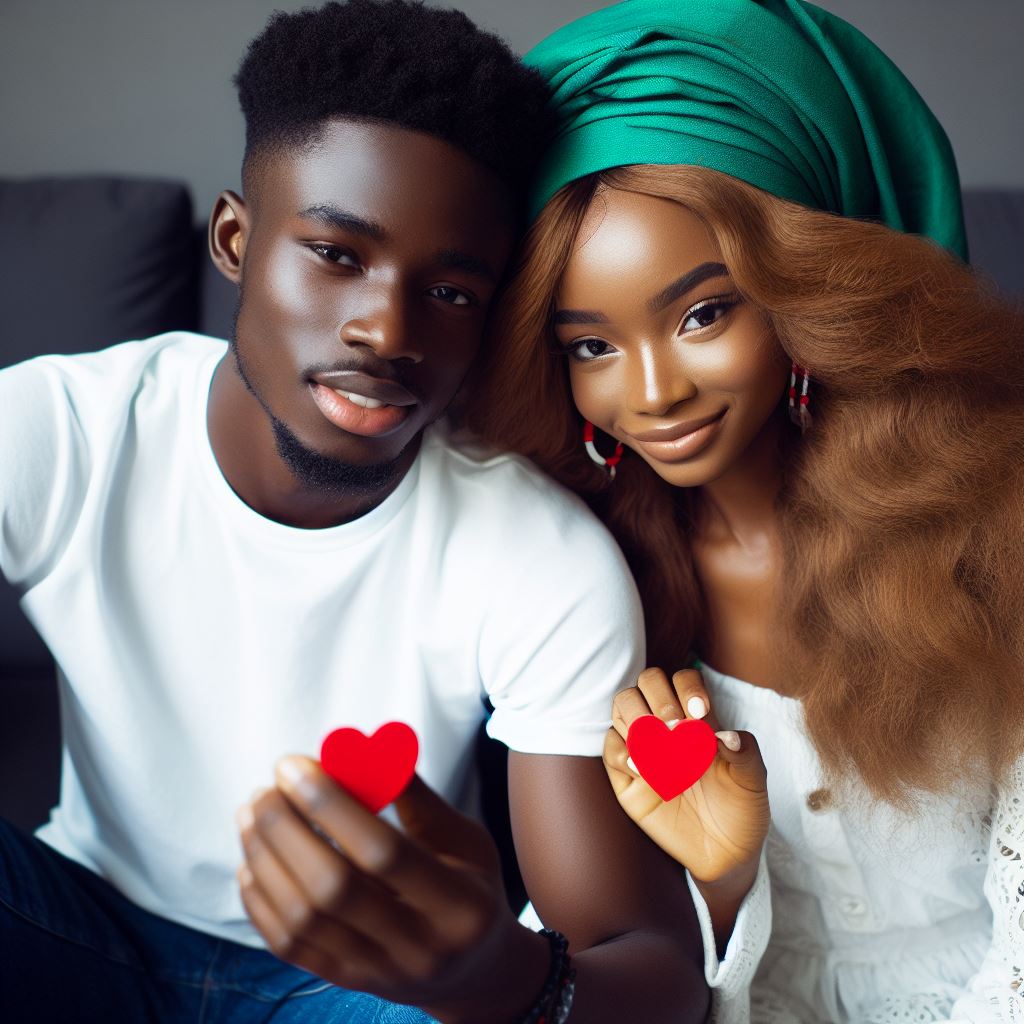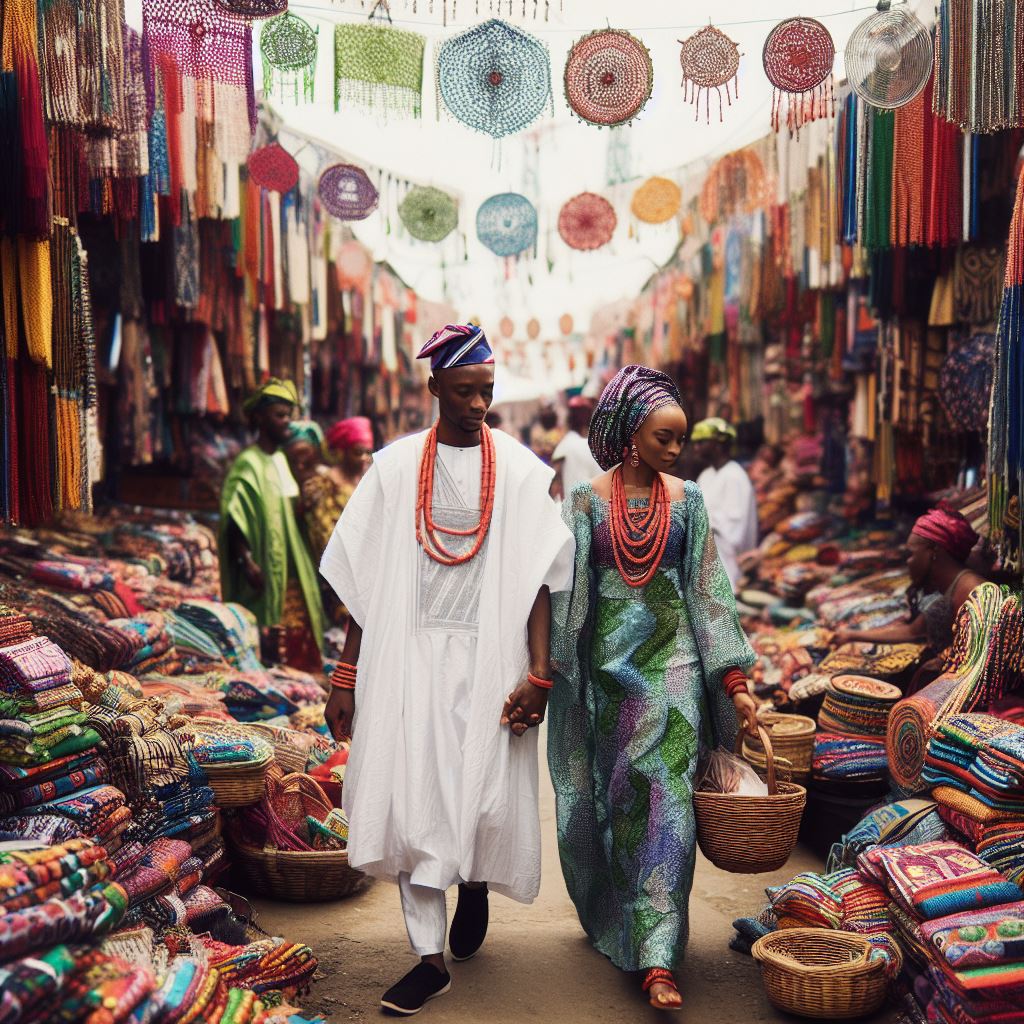Introduction
Nigerian cultures have long embraced the institution of marriage, which has evolved over time.
This blog post provides a brief overview of marriage in Nigerian cultures and discusses how its definitions have been influenced by social, cultural, and economic factors.
Brief overview of marriage in Nigerian cultures
Marriage holds great significance in Nigerian cultures and is considered a vital aspect of societal stability.
It is not merely a union between two individuals but also a joining of families and communities.
Traditionally, Nigerian marriages were arranged by families who sought to strengthen alliances, maintain social status, and preserve cultural practices.
These unions were often guided by elders and were seen as a way to ensure economic stability and continuity.
Over time, marriage practices in Nigeria have undergone significant changes.
The influence of colonialism, westernization, and globalization has led to a shift in societal values and the redefinition of marriage.
Thesis statement
This blog post aims to explore the factors that have contributed to the evolution of marriage definitions in Nigerian cultures.
By understanding these transformations, we can gain insight into the dynamic nature of Nigerian society and the ways in which it continues to adapt and evolve.
Traditional Marriage Practices in Nigerian Cultures
Traditional marriage practices in different Nigerian cultures
- Marriage practices vary across Nigerian cultures, with each tribe having its unique customs and traditions.
- They include the Igbo, Yoruba, Hausa, Efik, Ibibio, and many other ethnic groups.
- These practices play a crucial role in defining marriage and maintaining cultural identity.
- Marriage is viewed as a sacred institution that brings families and communities together.
- It is an essential aspect of Nigerian life, with great emphasis on family bonds and kinship.
- Traditional marriage practices ensure the continuation of cultural values through generations.
Role of customs, traditions, and family in defining marriage
- Customs and traditions heavily influence the process of choosing a spouse.
- Parents and extended family members play a significant role in arranging marriages.
- Marriage is considered a union of families rather than just individuals.
- The bride and groom’s families negotiate dowry, bride price, or symbolic gifts as part of the marriage process.
- Traditional values, such as respect for elders and community involvement, shape the dynamics of marriage.
- Marriage is seen as a social contract that upholds societal norms and expectations.
Examples of traditional marriage ceremonies and rituals
- The Igbo tribe practices the “Igba Nkwu” ceremony where the groom seeks the bride’s hand formally.
- The Yoruba tribe has the “Engagement Ceremony” called “Eru Iyawo” where gifts are exchanged between families.
- The Hausa tribe has the “Biki” ceremony where the groom and his family officially ask for the bride’s hand.
- The Efik tribe practices the “Mbombok” ceremony where cultural displays, dance, and music are performed.
- The Ibibio tribe celebrates the “Iwuk Edem” ceremony with elaborate traditional dances and feasting.
- Other tribes have unique rituals such as the breaking of kola nuts, pouring of libations, and traditional blessings.
Traditional marriage practices in Nigerian cultures hold immense significance in preserving cultural heritage and promoting societal cohesion.
These practices showcase the diversity and richness of Nigerian traditions, allowing each tribe to contribute its unique customs and rituals to the concept of marriage.
It is through these ceremonies and traditions that generations pass down their values, ensuring the continuity of Nigerian cultural identity.
Family and community involvement, as well as the role of customs and traditions, strengthen the bonds of marriage, making it more than just a union between two individuals.
Understanding and embracing these traditional practices foster a deeper appreciation for the evolving definitions of marriage in Nigerian cultures.
Read: God’s Plan for Marriage: Rooted in Biblical Scriptures
Impact of Colonialism on Marriage Definitions
How colonialism influenced Nigerian cultures and societal norms
Colonialism, characterized by the political, economic, and cultural domination of one nation by another, had a lasting impact on Nigerian cultures.
As European powers established colonies in Nigeria, they sought to impose their own systems of governance, education, and cultural practices onto the indigenous population.
These imperial powers regarded Nigerian cultural practices, including marriage, as primitive and in need of reform.
This led to significant changes in the definition and understanding of marriage in Nigerian societies.
Introduction of Western ideas and concepts regarding marriage
During colonialism, European missionaries played a crucial role in introducing Western ideas and concepts regarding marriage to Nigerian communities.
These missionaries considered traditional Nigerian marriage practices as pagan and sought to convert the indigenous population to Christianity.
As a result, they propagated Western ideals of monogamy, based on the Christian notion of marriage, and encouraged the abandonment of polygamy and traditional marriage structures.
The introduction of Western ideas regarding marriage by the colonial powers led to a shift in cultural attitudes and practices among Nigerians.
Examples of changes in marriage definitions and practices during the colonial era
One significant change brought by colonialism was the adoption of monogamy as the primary form of marriage, replacing polygamy in many Nigerian cultures.
The colonial authorities, influenced by their Christian beliefs, saw polygamy as immoral and sought to eradicate this practice.
Traditional marriage structures, which emphasized extended families and multiple wives, were gradually weakened and replaced by the Western notion of a nuclear family.
Furthermore, the introduction of colonial laws and regulations also impacted marriage practices.
The Marriage Ordinance of 1914, for instance, imposed legal restrictions on marriage, imposing Western norms and regulations on Nigerians.
Additionally, the colonial era witnessed a shift towards court weddings as the preferred form of marriage, replacing traditional ceremonies and rituals.
These changes in marriage definitions and practices during the colonial period serve as lasting legacies of colonialism in Nigerian cultures.
Basically, colonialism significantly influenced Nigerian cultures and societal norms, including the definition and practices of marriage.
Western ideas and concepts regarding marriage were introduced, leading to the adoption of monogamy, the weakening of traditional marriage structures, and the imposition of legal regulations.
These changes continue to shape the diverse Nigerian cultures and their perceptions of marriage today.
Read: The Role of Husbands & Wives: Exploring Ephesians 5
Modernization and Globalization’s Influence on Marriage Definitions
Effects of modernization and globalization on Nigerian cultures
- Increased exposure to different cultures has broadened the perspectives on marriage.
- Introduction of new ideas and values has led to reevaluating traditional marriage definitions.
- Adoption of Western practices and ideologies has influenced Nigerian marriage definitions.
- Access to information through the internet has facilitated the exchange of marriage concepts.
- The impact of modernization and globalization has challenged the traditional roles and norms.
Influence of urbanization and the rise of technology
- Urbanization has brought together diverse individuals, contributing to the evolution of marriage.
- Increased education and career opportunities have reshaped individuals’ expectations of marriage.
- The rise of technology has facilitated long-distance relationships and intercultural marriages.
- Technological advancements have altered the dynamics of courtship and communication in marriages.
- Urban lifestyle and access to technology have led to the emergence of non-traditional marriage arrangements.
Examples of how global ideas and trends have shaped marriage definitions in Nigerian societies
- The concept of romantic love, influenced by Western culture, has gained prominence in Nigerian marriages.
- Arranged marriages are less common as individuals have greater autonomy in choosing their partners.
- The acceptance of same-sex marriages is gradually increasing due to global LGBTQ+ movements.
- Interfaith marriages have become more prevalent as religious boundaries become more flexible.
- The influence of global media has led to the celebration of lavish weddings and extravagant ceremonies.
Generally, modernization, globalization, urbanization, and the rise of technology have collectively reshaped marriage definitions in Nigerian societies.
The exposure to different cultures, ideas, and global trends has significantly influenced individuals’ perspectives on marriage, challenging traditional norms and roles.
As Nigerian cultures continue to evolve, the influence of modernization and globalization will undoubtedly continue to shape the ever-changing landscape of marriage definitions.
Read: Navigating Marital Challenges: Guidance from the Bible
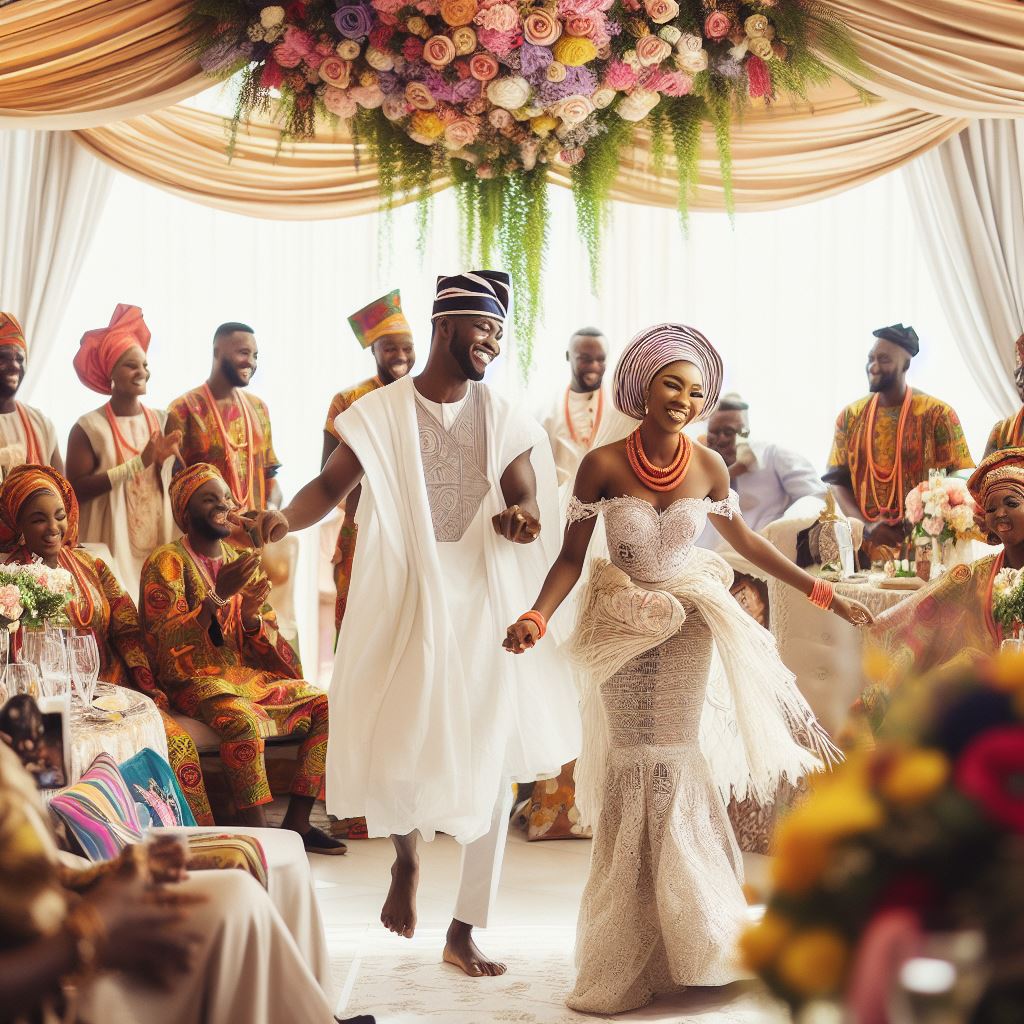
Legal and Policy Changes
Overview of legal and policy changes regarding marriage in Nigeria
In recent years, Nigeria has witnessed significant legal and policy changes surrounding the definition of marriage, reflecting the evolving societal attitudes and values.
Analysis of the impact of the Nigerian legal system on marriage definitions
The Nigerian legal system plays a crucial role in shaping the definitions and understanding of marriage within the country’s diverse cultures.
The introduction of new legislation and court rulings has challenged traditional notions and expanded the scope of marriage in Nigeria.
These changes have recognized the rights of individuals to marry based on love, mutual consent, and personal choice, rather than solely on cultural or religious expectations.
Furthermore, legal reforms have aimed to ensure gender equality and protect the rights of women within marriage, such as the prohibition of child marriage and polygamy.
Recognition of different types of marriages
The Nigerian legal system acknowledges and provides legal recognition to various types of marriages, encompassing both civil and customary marriages.
Civil marriages, performed under statutory laws, are recognized as legally binding throughout the country, regardless of cultural or religious affiliation.
These marriages require compliance with specific legal procedures, such as obtaining marriage licenses and conducting ceremonies in the presence of authorized individuals.
On the other hand, customary marriages, practiced in accordance with traditional customs and cultural norms, hold legal validity in Nigeria.
While customary marriages may not adhere to strict legal formalities, they are recognized and protected under Nigerian law, ensuring the rights of individuals involved.
Additionally, the recognition of customary marriages contributes to the preservation and celebration of Nigeria’s rich cultural heritage.
It is worth noting that in some cases, individuals may choose to have both a civil and customary marriage, ensuring legal protection and cultural fulfillment.
Read: A Lifelong Bond: Inspirational Bible Verses on Marriage
Socio-Cultural Shifts and Changing Attitudes
Exploration of socio-cultural shifts in Nigerian societies
Nigerian societies have experienced significant socio-cultural shifts over the years, leading to changes in marriage definitions.
These shifts can be attributed to various factors such as urbanization, globalization, and the influence of Western cultures.
As urban areas grow and traditional values are gradually replaced by modern lifestyles, the concept of marriage evolves.
Changing attitudes towards marriage, gender roles, and marital expectations
In the past, marriage in Nigerian cultures was often seen as a duty or obligation, primarily focused on procreation and family honor.
However, changing attitudes have led to a more individualistic approach to marriage, where personal happiness and compatibility are emphasized.
Gender roles have also been redefined, with women gaining more independence and equal rights within marriage.
Marital expectations have shifted from solely fulfilling societal norms to the pursuit of emotional fulfillment and personal growth.
Examples of how education, exposure to different cultures, and social media have influenced marriage definitions
Education plays a crucial role in shaping new perspectives on marriage in Nigerian cultures.
As more Nigerians gain access to formal education, they become exposed to different ideas and beliefs, challenging traditional norms.
Exposure to different cultures, through travel or migration, exposes individuals to alternative marital structures and practices.
Social media platforms have also played a significant role in reshaping marriage definitions by providing a platform for discussions and sharing diverse experiences.
For instance, online communities and influencers can challenge traditional notions by promoting alternative relationship models.
In all, Nigerian societies have witnessed socio-cultural shifts that have significantly influenced marriage definitions.
Changing attitudes towards marriage, gender roles, and marital expectations have resulted in a more individualistic and egalitarian approach.
Education, exposure to different cultures, and the impact of social media have all played significant roles in reshaping these definitions.
These changes reflect a broader global trend towards redefining traditional institutions to fit evolving societal values.
Delve into the Subject: Preparing for Your First Marriage Counseling Session in Nigeria
Conclusion
Recap of the evolution of marriage definitions in Nigerian cultures
The concept of marriage in Nigerian cultures has transformed significantly over the years.
From traditional arranged marriages to a more individualistic approach, the meanings and practices associated with marriage have adapted to social changes.
Final thoughts on the significance of understanding these changes
Understanding the evolution of marriage definitions in Nigerian cultures is crucial for several reasons.
Firstly, it helps us appreciate the diverse cultural heritage of Nigeria and the importance of preserving it.
Secondly, it allows us to recognize the impact of modernization and globalization on traditional practices.
Lastly, comprehending these changes helps us foster inclusivity and respect for different marital choices and identities.
Closing statement: Marriage definitions in Nigerian cultures continue to evolve as society progresses
As Nigerian society continues to evolve, so will the definitions and practices surrounding marriage.
It is essential to approach these changes with an open mind, embracing diversity, and promoting equality and respect for all individuals, regardless of their choice of marital arrangements.

